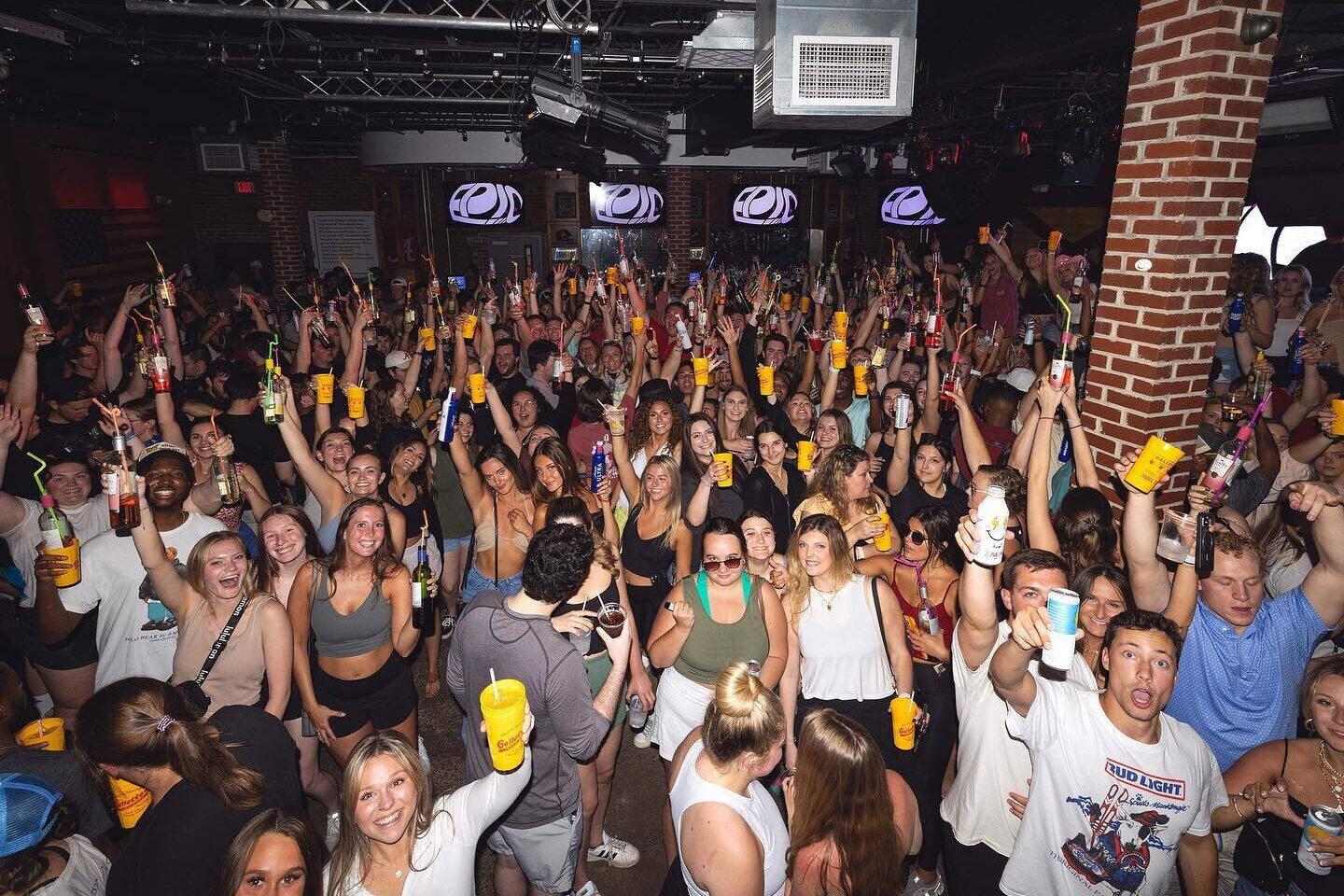Since a shooting on The Strip in Tuscaloosa that resulted in the death of a 23-year-old female and the arrest of a University of Alabama (UA) basketball player in January landed the city in the national press, Tuscaloosa City Council members and law enforcement have been discussing how to make the city's bar scene safer.
The Strip is home to several bars frequented by UA students, such as Rounders and the Bear Trap. Tuscaloosa is home to 39 bars and gastropubs, but the vast majority are concentrated across six city blocks.
The council has already placed a moratorium on approving new alcohol vendor licenses until the end of the year.
Though they took no formal action, city council members discussed forcing bars to stop serving alcohol earlier last week.
During last week's Administration Committee meeting, Tuscaloosa City Councilman John Faile initially proposed this policy to the council. He told 1819 News on Wednesday that he's afraid the police force is being stretched thin by The Strip, which hinders them from serving other Tuscaloosa residents on weekend nights.
"The issue is that there are so many people down there," he elaborated. "There's more people there than there is room for those people, and it clogs up the sidewalks and, on occasion, some of the bar owners have had to just close because their customers can't get to the door because their customers can't in the way … It's not just on football weekends."
Faile said there aren't frequent shootings on The Strip, but police "have recovered quite a few weapons" while patrolling the area. He insisted people from out of town, more often than UA students, cause trouble on the Strip.
Moreover, the nightlife district frequently deals with overcrowding and requires a heavy police force. This is on top of a national police shortage.
Faile even said one Tuscaloosa resident complained that they had to wait 55 minutes before a police officer came to their house.
"Depending on how you look at the numbers, we're about 40 policemen short from where we'd like to be," Faile said. "There's a number of reasons for that, and my concern is that people in Tuscaloosa aren't getting served by the police because there's so much time spent in this area."
The Tuscaloosa Police Department already opened a new police precinct near The Strip with the help of the UA Police Department in February. Currently, bars and lounges in Tuscaloosa can stay open until 2 a.m. on Saturdays and weeknights and by 2:45 a.m. on Fridays. On Sundays, bars must already close by 10:15 p.m.
Tuscaloosa Police Chief Brent Blankley said last week he was unsure whether or not an earlier closing time would help. Instead, he insisted the primary concern for his department is when bars close simultaneously, releasing crowds as large as 3,700 people into the streets.
But Faile said an earlier alcohol sales cut-off would mean bargoers are less intoxicated and, therefore, easier to deal with. He also suggested it would mean less overtime for police.
"My thought is that if people are less intoxicated and if the police don't have to stay as late, then it would have to help," Faile said. "I was a police officer for 25 years, and it just makes sense to me. You have to remember this is overtime for these guys. They've been working hours and hours and hours. Dealing with drunk people is very difficult. If you've been working 12 hours and you're dealing with drunk people, it's extremely stressful."
Bar owners have suggested they could stand to lose tens of thousands a Friday or Saturday night and even millions in annual revenue if forced to stop selling alcohol at midnight. This could also result in fewer hours and less pay for cooks, security guards and other workers. It would also mean less tax revenue for the city.
But Faile said the revenue from The Strip gets eaten away by the cost of keeping it safe.
"The revenue they give us is pretty much a wash on the overtime of the police and the other situations that go on because of all this," Faile said. "...If you're a bar owner, is it more important for you to make money or for somebody not to get killed out there again."
Faile said some bar owners suggested having staggered let-out times to keep bargoers from all leaving at once and placing a strain on the police. However, he said there are statutory limitations that make the suggestion infeasible.
Faile supported the alcohol license moratorium earlier this year, but he said the policy is "that big a deal" and simply a matter of being prudent about who gets to sell alcohol within city limits.
"We want to know who's opening a bar. We've had people open bars and tell us they're going to do one thing, and then they turn around and do something else," he explained. "Frankly, we don't like picking a choosing who gets to open up a bar, but we need to do our due diligence on who they are."
According to Neighborhood Scout, Tuscaloosa has a crime rate of 44.36 per 1,000 residents, one of the highest crime rates in America. One's chance of becoming a victim of either a violent or property crime in Tuscaloosa is 1 in 23.
However, the UA area is not one of the city's most crime-ridden. Several neighborhoods in West Tuscaloosa and the Buena Vista neighborhood just east of UA have more crime.
"I'll be honest with you," Faile said. "I'm scared to death that we're going to make national news out there on that Strip because of something awful happening."
To connect with the author of this story or to comment, email will.blakely@1819news.com or find him on Twitter and Facebook.
Don't miss out! Subscribe to our newsletter and get our top stories every weekday morning.










